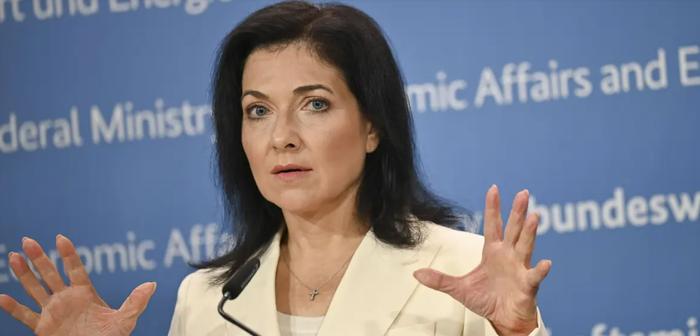
On July 12th, local time, U.S. President Donald Trump announced that starting from August 1st, tariffs of 30% would be imposed on EU goods entering the United States, a move that quickly triggered reactions across Germany.
△ German Federal Minister for Economic Affairs and Energy, Wolfgang Neumann (Photo)
German Federal Minister for Economic Affairs and Energy Wolfgang Neumann stated that despite the escalation of the situation, there is still hope for a “pragmatic negotiation outcome.” He mentioned that in the remaining time, the EU must strive to reach a solution with the United States on major and critical conflict points. The European Commission has received support from Germany in this negotiation direction. She also pointed out that the tariffs threatened by the United States will not only harm European export companies but also have “significant impacts on the economy and consumers on the Atlantic side.”
The German Federation of Industries (BDI) regards Trump’s actions as a warning signal to the industrial sectors on both sides of the Atlantic. The Executive Committee member Wolfgang Niedermayer stated, “Trade conflicts between the closely intertwined economic regions of the EU and the United States will damage economic recovery, innovation strength, and ultimately undermine trust in international cooperation.” He said, “In the weeks before the tariffs take effect on August 1st, equal negotiations must be conducted.”
The German Trade Association (BGA) calls for negotiations between the US and Europe over the tariff dispute. Trump’s announcement of imposing a 30% tariff is “part of a carefully planned negotiation strategy by the President of the United States.” The association’s chairman, Dekker Jan Dullaart, explained that Europe must not be deterred by this and must calmly seek solutions on the negotiating table equally. Moreover, Europe must reduce its reliance on American markets. Establishing a free trade zone with ASEAN countries and quickly approving the Southern Common Market agreement are crucial.
The Chairman of the German Automobile Industry Association (VDA), Hildegard Müller, expressed regret that “trade conflicts are about to escalate further.” Her company’s costs have reached billions of dollars, and this number is increasing day by day. The EU and the US now need to “find a solution as soon as possible.”
The German Machinery Engineering Association (VDMA) believes that imposing a 30% tariff on imported products into the US will endanger the survival of many businesses. The association’s chairman, Bertrand Korratte, stated, “Many companies can survive with a 10% tariff, but a 30% tariff is completely different.” He also called for greater emphasis on the importance of the European market.
Economists Jens Schoultz and Moritz Schulach predict that Trump’s threat to impose a 30% tariff on EU goods is not an ultimate decision. As an advisor to German Federal Minister of Finance Klaus Kuehn, Schoultz said, “Trump is known for repeatedly making tough statements and then backtracking,” “I have no reason to believe this time will be any different.”
Moritz Schulach, Director of the Institute for Economic Research at the University of Kiel, also believes that Trump’s concessions are highly likely. If Trump does not concede, the German economy will suffer a severe blow. Schulach predicted, “Next year, the growth rate of Germany’s GDP will decrease by 0.5 to 0.6 percentage points.” However, due to the German federal government’s fiscal spending plan, this shock will not lead to a recession in Germany’s economy. (CCTV Kang Yubin)